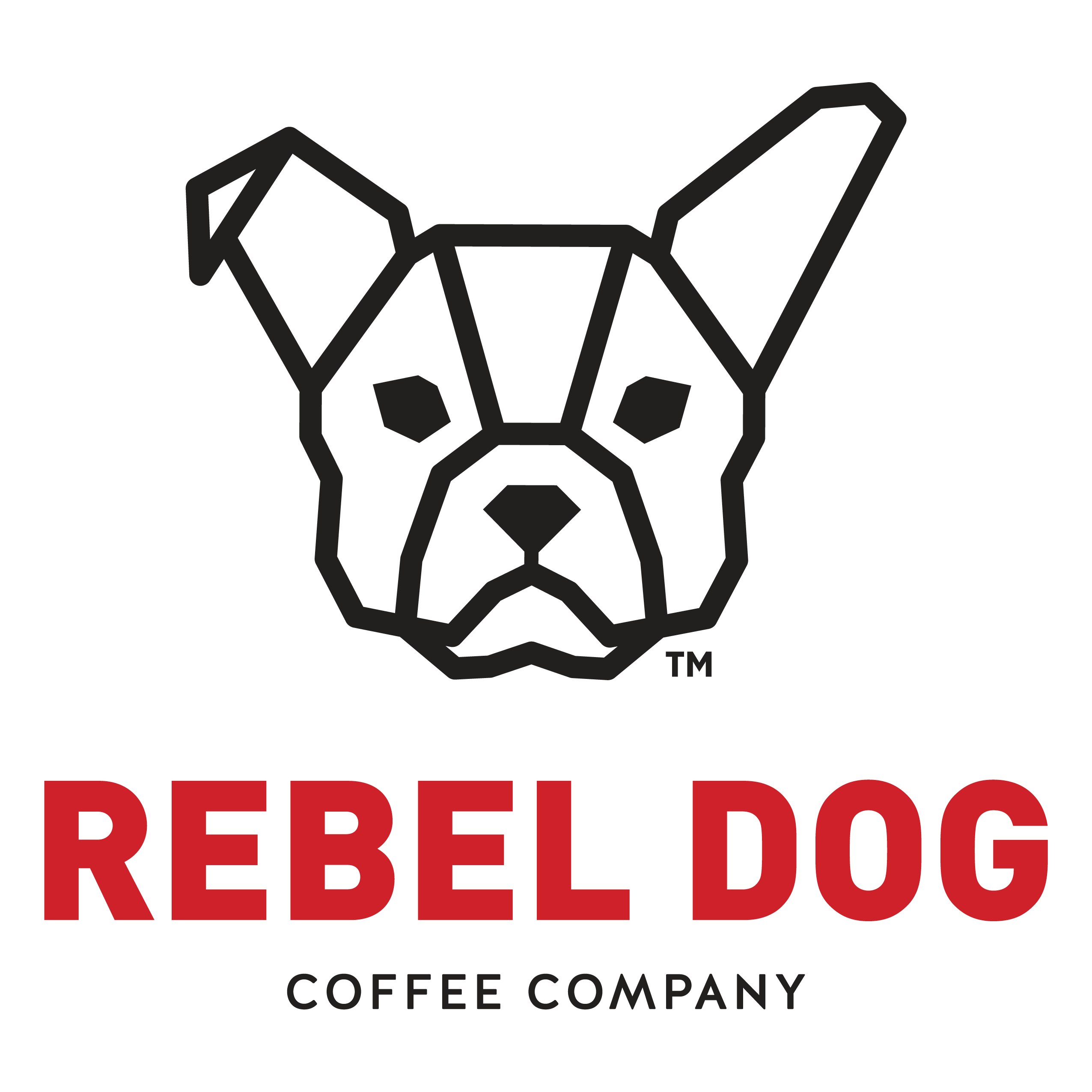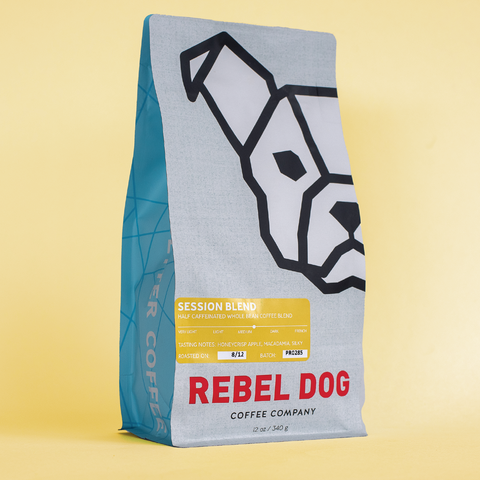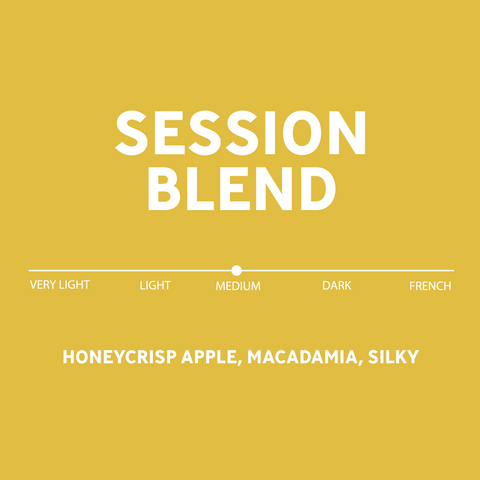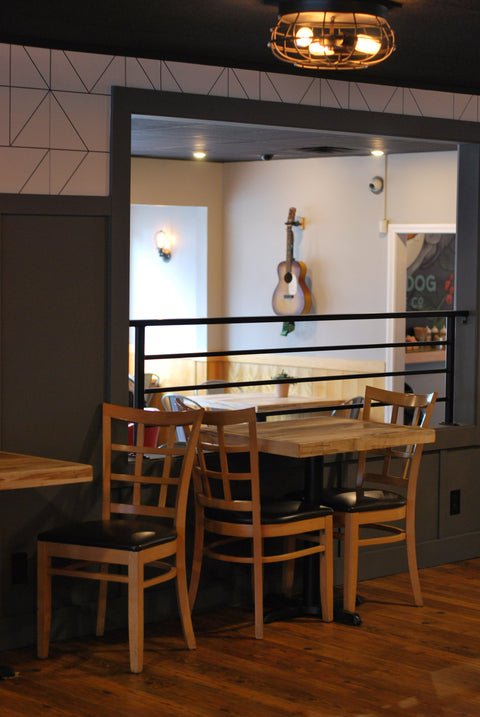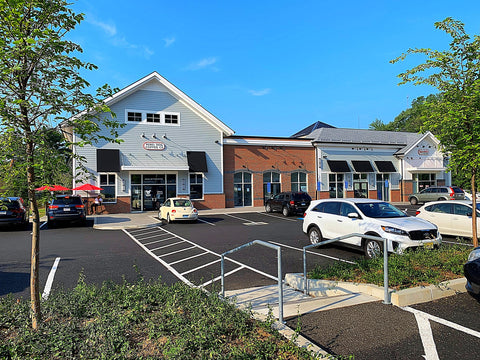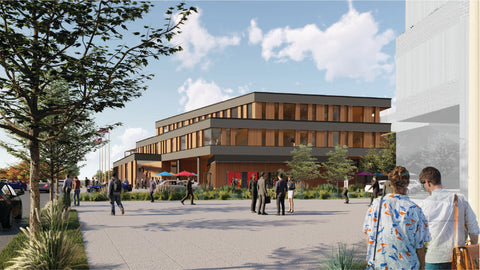What's in Session Half Caff
Varieties: Castillo, Colombia, Caturra
Growing Altitude: 1200–2100 masl
Processing Method: Natural Decaffeination
This coffee is custom decaffeinated for Café Imports in Colombia with a natural process that uses Ethyl Acetate (EA), a naturally occurring ester found in bananas and, for this purpose, as a by-product of fermenting sugar cane. This process is also known as Sugarcane Decaffeination, and is exceptional for maintaining the integrity and sweetness of the green coffee even as the caffeine is removed (until only a maximum of .001%-.003% remains).
Varieties: Castillo, Caturra, Colombia
Growing Altitude: 2,100 masl
Processing Method: Washed
Sourced from the elevated terrains of Buesaco Nariño in southern Colombia, this exquisite coffee is cultivated at over 2,000 meters above sea level on average. Buesaco's unique geographic and climatic conditions, characterized by volcanic soil and an average temperature of 18.6 °C, provide an optimal environment for producing coffee with distinct mild taste, high acidity, and sweet notes.
The region’s coffee cultivation heritage dates back to the 18th century, growing over time to become an integral part of the local cultural, economic, and social fabric. With its first international exposure in the early 20th century, Buesaco Nariño's coffee has since been celebrated in the specialty coffee segment worldwide for its unparalleled quality, cultivated in the unique environmental conditions of the region.
As with many coffee origins, it is believed that coffee was first brought to Colombia by priests, arriving, perhaps, within a decade or two after coffee first came to the Americas via the Caribbean in the first half of the 17th century. It was likely a garden crop grown for local consumption and barter for decades. Unlike other coffee regions, we have the story of a priest named Francisco Romero, who could be called the father of commercial coffee cultivation in Colombia. The folkloric tale goes that in the early 1800’s, Father Francisco, hearing confessions in the north eastern town of Salazar de la Palmas, assigned planting coffee to his parishioners as penance for their sins. The Archbishop of Colombia heard about this and ordered all priests to adopt the practice. Commercial production of coffee expanded quickly, moving into regions where the growing conditions were ideal.
Even though it’s been 4,000 years, the soil resulting from the last major eruption of Tolima is still considered “young soil,” filled with nutrients that are no longer found at the same levels in old soil. There is a long list of elements on offer in volcanic soil that are fading or absent in other soils, such as high levels of potassium and nitrogen. Also present is something called “Boron,” which arrived from outer space a long time ago, and is important to cell walls, the creation of enzymes, and the production of flowers and fruit, meaning Boron contributes to yield. Beyond the nutrients, the structure of volcanic soil is also beneficial to coffee growing. It can soak up and hold moisture while, at the same time, facilitate good drainage so water doesn’t pool, which is not good for coffee plant roots. Coffee plants like to take a drink, then take a break. Also, volcanic soils are usually found on an incline, which also helps with drainage.
